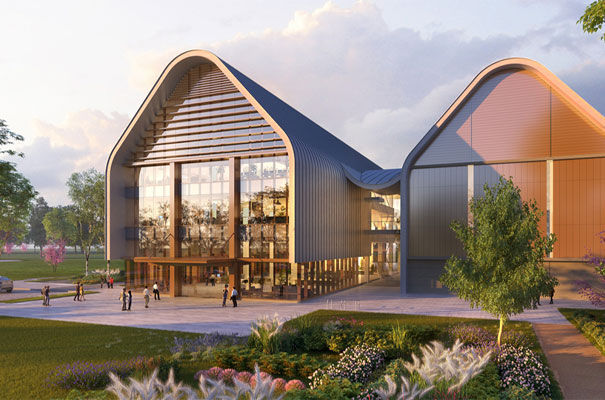Reports of Huawei’s death in Cambridge and the UK have been grossly exaggerated. The company remains committed to building out a new optoelectronics R & D and manufacturing centre at Sawston.
Key players within the business have urged the mother ship in China to pursue ambitious plans to turn the Cambridge facility into a world-renowned open innovation hub.
Huawei continues to see itself as a potential influencer for a broad Artificial Intelligence agenda that could establish Cambridge and the UK as a world-class player.
National media have made a meal of a slump in revenues for 2020 but Huawei has started 2021 with a 20 per cent growth in R & D activity. Headcount in Cambridge has grown by a similar figure and the company has attracted a number of interns excited about working on the bleeding edge technology emerging from the stable. Additionally, Huawei has already begun ramping major centres in the UK, including Cambridge, Bristol, London and Edinburgh.
There’s more: in 2020 the company scaled capability in designing and making its own photonic chip in the UK and it has already exported 100,000 of them from this country to China. Designed in the UK; made in the UK and exported from the UK. And Huawei is expanding that capability further.
Huawei has been impressed by the record levels of investment the Cambridge and UK technology sector has attracted in recent times and believes it can further contribute to the effort by opening up its global supply chains to technology partners here.
The rationale explained to management in China is that companies basing themselves in the UK want access to innovation, to the market, to skills – and here Cambridge University is key for Huawei – and to finance. It says the UK has all these things.
Broadening its portfolio way beyond 5G-related products has added resilience to its long-term play from Cambridge.
As part of a global operational review, Huawei has majored on potential new vertical markets – witness a transformational automotive segment, including electric cars – a sector that is massive in China and growing elsewhere. It is then set to drill down to the development of its strategic investments worldwide – including the new Cambridge centre.
It was just a year ago this month that Huawei won planning consent for the £1 billion first phase of the Cambridge project which includes construction of 50,000 square metres of facilities across nine acres of land and will directly create around 400 local jobs. Once fully operational, it will become the international headquarters of the ICT giant’s optoelectronics business.
There’s a revolution within the revolution that makes Huawei a key player in the Cambridge DeepTech roadmap.
Marginalised by the UK government over direct involvement in Britain’s 5G rollout, the company has already teamed up with Cambridge Wireless to deploy and build Cambridge’s first 5G mobile private network within the iconic Science Park.
The new set-up will allow Cambridge’s world-renowned technology community to undertake cutting edge new digital research and application in key areas such as autonomous vehicles, clean energy and remote surgery.
The 5G testbed is already live as part of a three-year partnership that will involve digital training, business support and joint events.
Huawei and CW have also teamed up to help fresh generations of tech talent become the digital leaders of the future. The CW Techsters programme, backed by Huawei, will enable students aged 16-22 from a wide range of backgrounds to study advanced technologies like 5G, AI, IoT, coding and sustainability.

